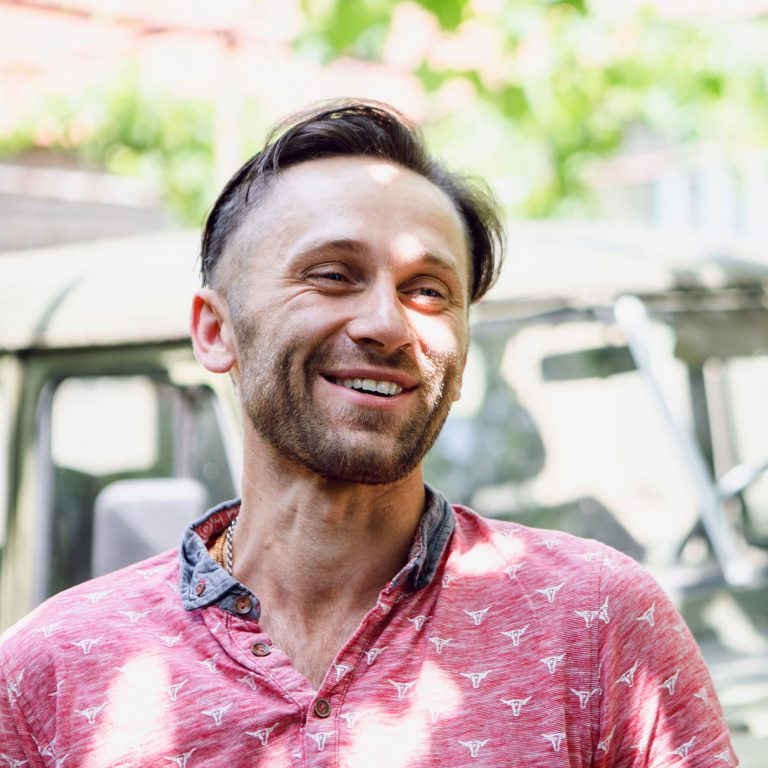If statistics is anything to go by, Ukraine keeps facing active urbanism processes, rural areas keep growing old and dying out. And only one region shows the opposite – and of all others it is Zakarpattia.
First, Zakarpattia is the least urbanized region of Ukraine – only 36.6% residents of the region live in towns; second, for the last 25 years this index fell 4% while having grown in any other regions of Ukraine. The towns artificially settled by villagers in soviet times keep suffering from chaotic development, village culture, and army of social workers while rural lands continue to depreciate. Urbanization was the most active in 20th-30th years of the XX century –in those times the population of towns grew considerably, and some “social towns” were built from the start. This phase passed Zakarpattia by; at that moment the region was a part of Hungary. It might be the reason why Zakarpattia managed to become the least urbanized region with the smallest oblast center and rural area still alive.
Not everything is so well here, though. Traditional agriculture, cattle breeding, trades and crafts lose their urgency and all the more become the attributes of the open-air museums than the way of living of true rural dwellers. At the same time, Ukrainians with increasing frequency see the news lines with the words ‘ecology’, ‘ecological compatibility’, pay their attention to the products labeled as eco, and start understanding what this is about. But hardly anybody truly thinks about what hides behind the hackneyed phrase “a friend of the nature” and how a man can interact as equal with the environment, preserving his traditions.
How ecovillages emerged
It is the acknowledgement of threats posed by the society of consumers who use resources without limit and the understanding of interaction between a human and the environment that caused in due time the formation of ecology movements. Their principal message to people was the necessity to protect, to actively develop, and to create the elements of the environment for their existence. Virtually, any movements start when a person recognizes that the problem exists, that it concerns him personally, and that the person himself is responsible for its solution.

That was the start of ecological movement that got the name of ecovillages, or ecovillages. The movement supporters of this alternative model of life see their aim in creating and preserving ecologically clean area. It is the environment where people eat on the account of organic rural sector, reasonably consume energy, and live in harmony with nature in general. The origins of ecovillages emergence are associated with the formation of steady and utopic communities. Yet in 60th there were hippie-communities formed: Findhorn in Scotland and Southern Wind in the USA. The latter one exists as ecovillage until now and it has combined places for rest, work, development, and communication between people. And Findhorn became one of the founders of the world network of ecovillages at the beginning of 90th.
Ecovillage for Ukraine is more unusual phenomenon that it is for Western world. Historically, Ukrainians didn’t have vast experience in founding communes and alternative communities. However, in the end of the 90th the idea of ecovillages started to spread here too, after the books of Volodymyr Megre had been published.
Patskaniovo
We were going at the invitation of the village museum managed by former head of the village but found a much better story. A story of how a small land area and several old huts form a genuine ecovillage from the start, attracting people to come and stay here. The organizer of this ecovillage Volodymyr Vashko welcomes us with a crutch. In his childhood, he used to watch a lot of westerns and dreamed to have horses, but only after having lived in a city for a long time and having tried to work his way up the ladder of power he understood that what he truly wanted was horses. From one of the horses he fell just a few days before we arrived.
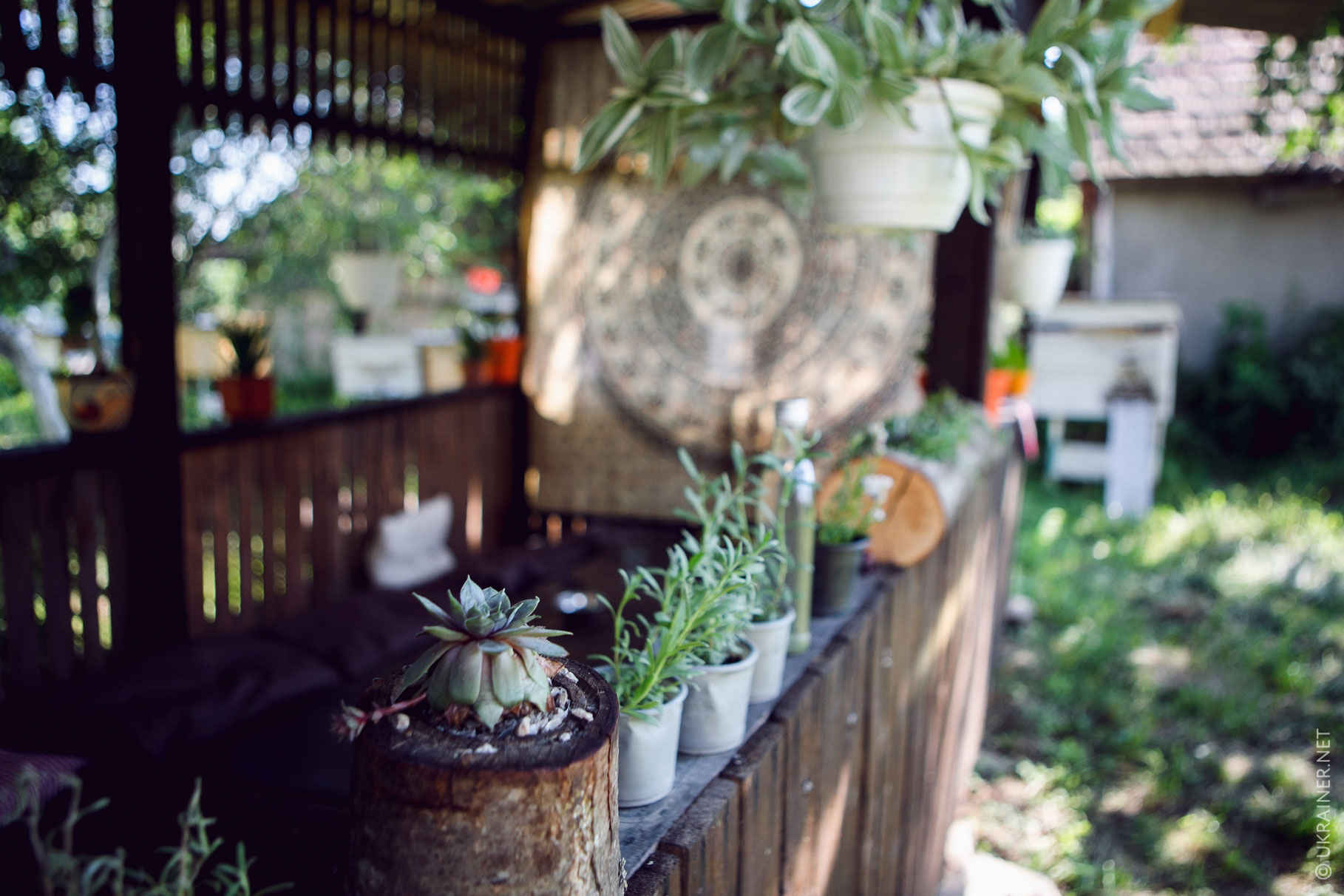
— Life has its turning points, when the world comes upside down. It’s about living and living in a place with clean air, pure water, and what’s more important – where you can eat ecologically clean food. As people say: “We are what we eat”. I don’t want to poison either myself, or nears and dears, or my future children – I do want them to be healthy and happy.
Now, Volodymyr is the village deputy in Patskaniovo Village Council, and before that he was the deputy of oblast. Laughing, says he:
“I was seeking to get to the Verkhovna Rada and found myself in Patskaniovo. But I like it and have no regret; I made a great choice, and each day I get convinced that it was the right one. That is because we are happy here, well, I am, at least.”
Volodymyr’s father worked at Central Union of Consumer Associations, was occupied with fruits and vegetables laying-in, and forwarded it from Zakarpattia Oblast over the whole USSR. That is why his son, in some sense, continues his work.
— When I grew up, I understood that everything in life must be genuine, natural. And I started searching for such a bread that I ate when I was a kid, and I didn’t find it, no one produces such any more…
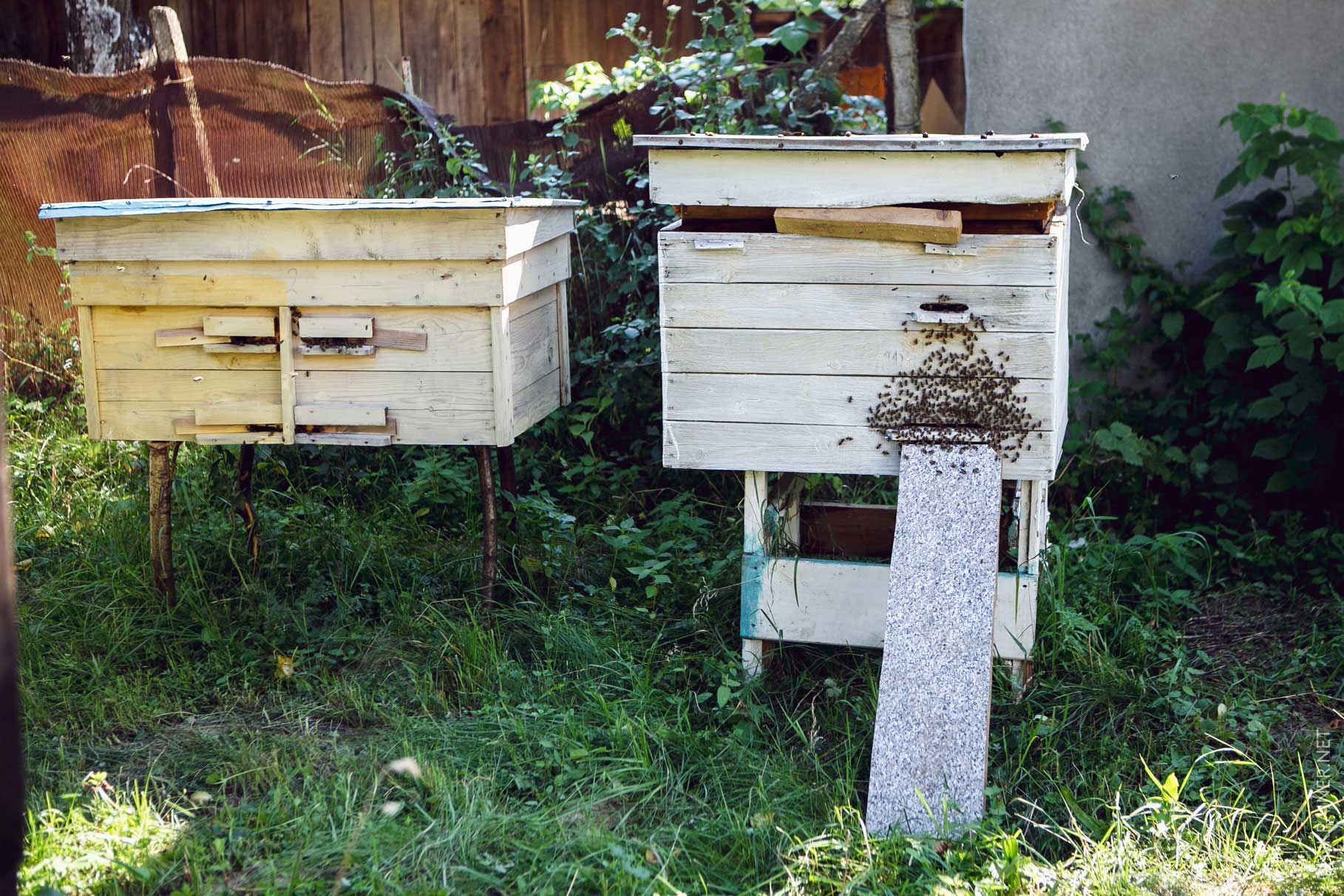
Bread is the staff of life
That genuine bread with the taste of childhood is not produced due to several reasons. It is both a very laborious and expensive task, therefore economically not profitable. Thus, Volodymyr together with other inspired people decided to create such product by himself. Making a positive contribution not for himself only but for people around is his chief goal. Together with him, we are going to his house – at this spot his grandfather lived once – and in soviet times a shop was here, and now Volodymyr managed to reconstruct the premises into the village bakery.
Volodymyr says with concern that Zakarpattia residents have no other choice when buying bread. Everyone eats bread product, a supplement of something natural. But where it comes from?
At the end of 30th years of the previous century, a discovery was made, not so comforting by its influence for our organism, as found later. Sophisticated geneticists have invented a specific kind of yeast – thermophilic. This special kind is characterized with resistance to different temperatures in oven that has a negative influence over intestines microflora. In contrast, a usual yeast fungus doesn’t survive in a human’s organism due to high temperature.
— Do people from Zakarpattia know they eat not a genuine bread but a bread product? When we check the label and read the ingredients, besides water, flour and salt we find an inscription in small letters at the end – yeast. Why it is said “sour cream product”? It seems to taste as a sour cream but made from other ingredients like palm oil, starch and flavoring agents, to make it smell as a sour cream. The same thing with bread. Baking powders, bleaching agents, for a bread to preserve well, for it not to crumble, oh yes – and yeast itself – all this is not to the good of health. Find thermophilic yeast used in bread production at all bakeries in State Standards of Ukraine – you’ll see sulfuric acid, ammonia, fertilizers which are used in agriculture. It’s terrible! That’s why we’ve opened a small bakery to bake bread under grandfather’s recipes, not yeasty but natural, leavened. This is how bread was baked a thousand, five thousand years ago, and 70 years ago my grandfather used to bake bread this way.
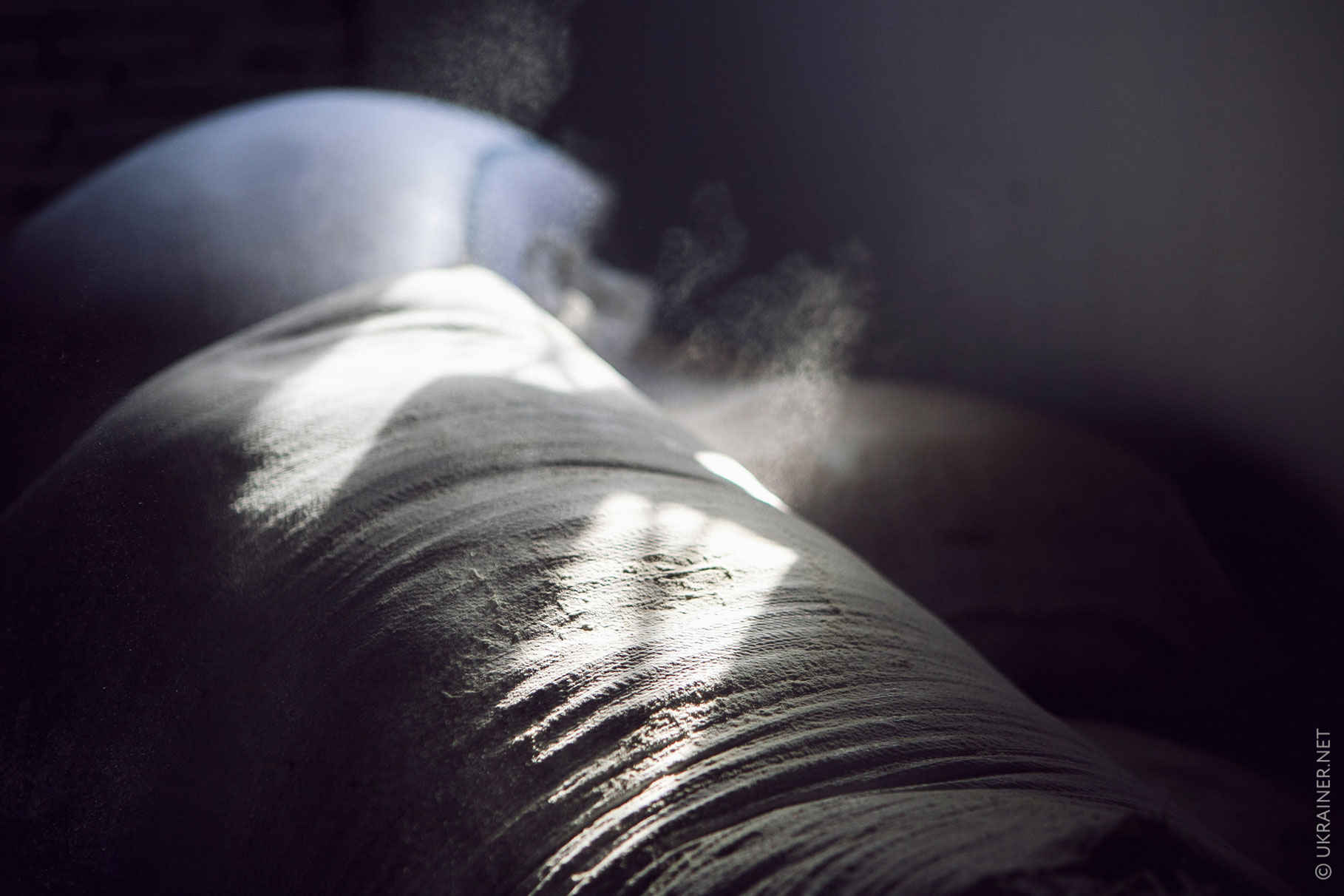
Volodymyr, nostalgic, thinks of the times when he was five and baked bread in the oven with firewood together with his grandmother. This bread never got spoiled so the whole family used to eat it for two weeks. Now Volodymyr wants to do so that all people had the chance to eat natural bread. According to him, such loaf of bread will cost 12 UAH maximum.
Home bakery in Zakarpattia usually consists of an oven approximately 1 m X 70 cm in size. Ecosettlers have a bit larger oven – 2m x 2m in size. Here, 120 loafs can be baked at a time – 500-700 loafs of bread each day.
Production technology of a natural bread
For centuries bread was baked with country leavens from a rye flour, wheat, oats, barley and malt. Leavens were the main bread component, while cereals enriched an organism with vitamins, organic acids and minerals.
Over the last years a tendency of coming back to the old simple recipes of baking home bread has spread among Ukrainian people. Recognizing the damage of thermophilic yeast, Ukrainians switch over to so-called live leaven which due to its useful elements strengthens immunity, gives energy, and helps to prevent catarrhal diseases. In Zakarpattia, there is a particularly great number of ancient cooking traditions remained, therefore, there is hope that step by step a the ancient bread baking recipes will be revived in society.
Volodymyr Vashko shared his experience of creating genuine home-made bread.
— Bread consists of leaven. It is simple to prepare a leaven: you need some flour, water, and an hour of time. You add water into flour in ratio, mix it so it was like sour cream in consistency, and continue adding flour and water each day. And on the 5th day you get a leaven ready for usage. Natural bread requires spring water. We take it from our old spring situated in front of the house. It’s about 200 years old, water is tasty there. We us salt and syrup instead of sugar because sugar is bleached by various chemical agents, and we try to use only natural ingredients. We have a neighbor, a very interesting person, he lives here, in Patskaniovo, and in Mukachevo he has his own mill. He buys grain, mills it and makes whole-grain flour, white but not bleached, of superior quality. Thus, we are supplied with Zakarpattia flour we use in bread production. Therefore, one can say, we use everything Zakapattian.
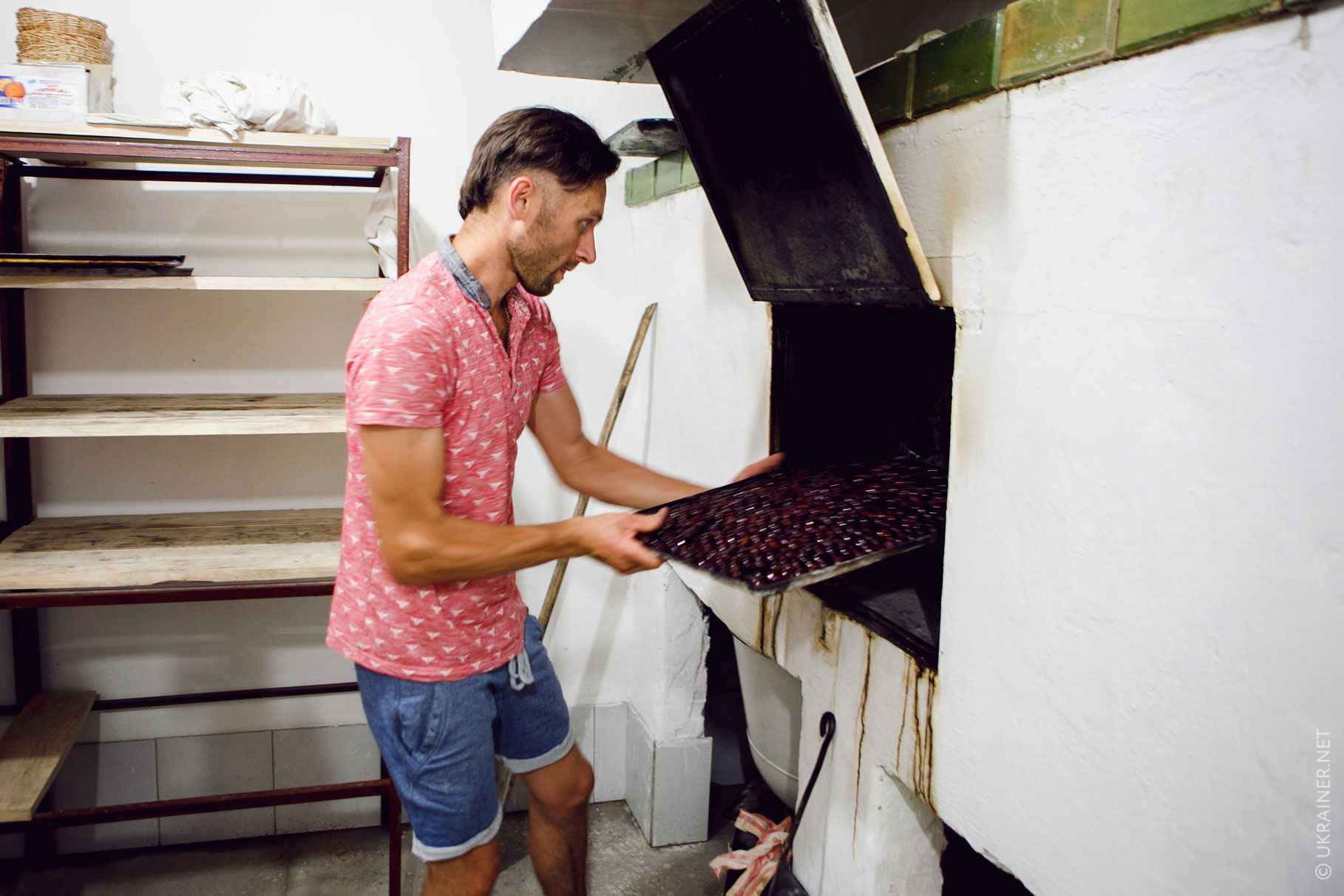
— It is very simple. There is flour – it is weighed out; a sieving tool where flour is sifted through the sieve, is saturated with oxygen for bread to better turn sour. And also there is a kneader. In general, the process of bread production takes between 16-20 hours. It is five or six times longer than in usual bakery. To this reason no one wants to bake such bread: a lot of work with small gain. Everyone seeks money. When firewood burns down, only ash is left there. We fully sweep the ash out, wash the oven, and when it’s finally clean, bread is put there from the reverse side. Oven must be cleaned after each kindle. Each kindle allows baking bread three times minimum.
Who grazes in the meadows?
— There is a small number of goats in the cattle yet – it’s just the first year we started to deal with them. Now we have four milk goats and for now it is enough so that ecodwellers could have milk and cheese for themselves. We have plans to create a small goat farm and make cheese for production. In this area, at the bottom of the mountain Makovitsa, which is on the southern slopes, there is a lot of bushes, woods and glades – which are grassy – a beautiful place for goats.
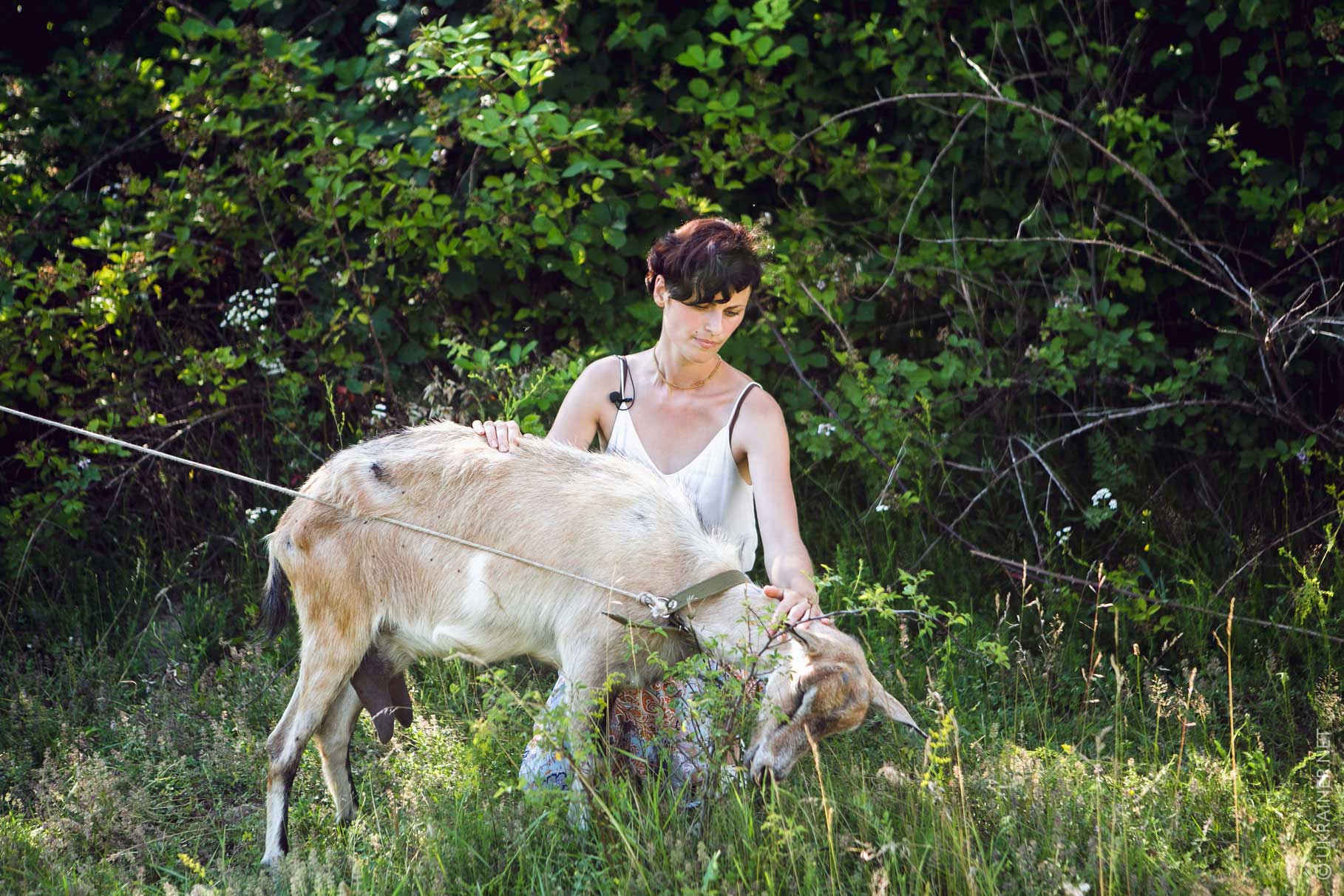
Maryna Babych, who helps Volodymyr to do the housekeeping, shows us the horses brought from Tyachivsky District.
— Generally, horses serve for household mostly. They help to plough, and we also use them for riding, and to love them.
How is living arranged?
All community of ecovillages (regardless the part of the world it is situated in) is operated by new alternative principles of respecting nature and each other, of responsibility, mutual assistance and solidarity. Therefore, it is no wonder that Patskaniovo village constantly accommodates volunteers who cooperate with Volodymyr for the mutual aim – to live simple life in village, restore environment, eat natural food and develop spiritually. Saying in simple words, it is a kind of commune open for anyone who holds more or less the same views with organizers. Thus, like-minded people from Dnipro, Ivano-Frankivsk, Zakarpattia, and Kharkiv have united here.
— In fact, I don’t look for anyone. It’s the circumstances in life are such and God creates such situations that people are just attracted. I mean, they are the acquaintances of acquaintances or my friends. Each of us traveled a long path of life, and one way or another we were acquainted through someone. I shared thoughts, as I love to chat, to communicate. When people hear the ideas that coincide with theirs, they say: “I love it, let’s try it.” That simple method it is.
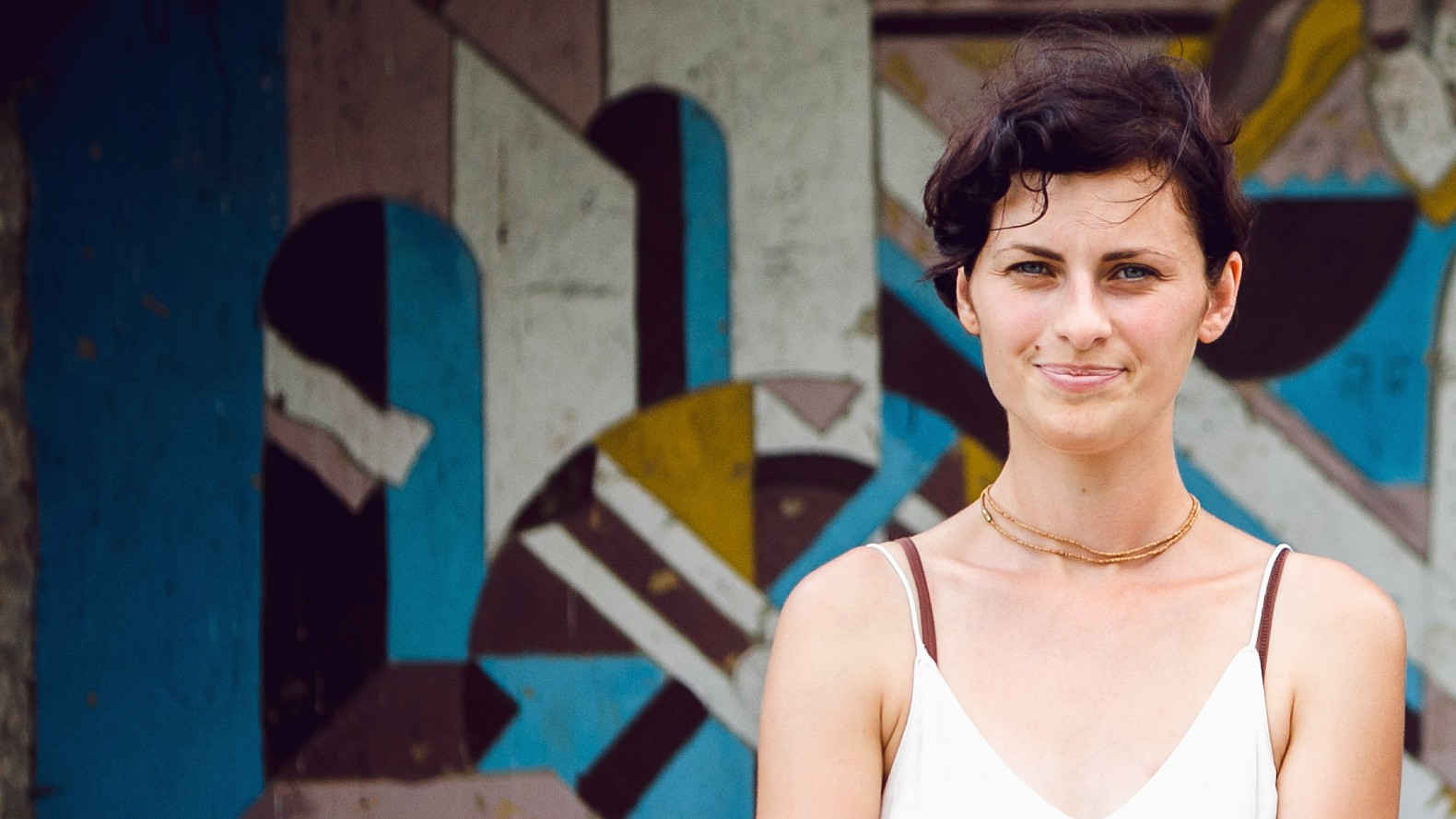
The important thing is that any ecovillage covers more than just an ecological space, but social and spiritual as well. Good ecovillage is the place where residents can fully develop their skills and abilities. During our communication, Volodymyr also thinks of Abraham Maslow’s table of needs, or to be more precise of the hierarchy of the most important human needs: from the simplest physiological to the special social and spiritual. The first is food, the second is sleep, the third is the sense of security, then procreation, and the social needs are built on higher.
— A person can’t live without communication. If a person doesn’t communicate, he degrades. And as it is said, you live and learn from those you live with. That is why we, the like-minded people, have gathered here. To grow everything necessary for one family to live is possible but very hard. So we chose this path: one person deals with bees, the other one with vegetables and two guys take care of bread. So, for instance, now Maryna and I deal with goats and cheese. We like it. We gather herbs, would like to make packs of herbs, jam and syrups as well. Today you’ve tasted sun-dried tomatoes, tried our cheese – natural and awesome.
— The only thing I can take with myself is what I develop and keep inside me.
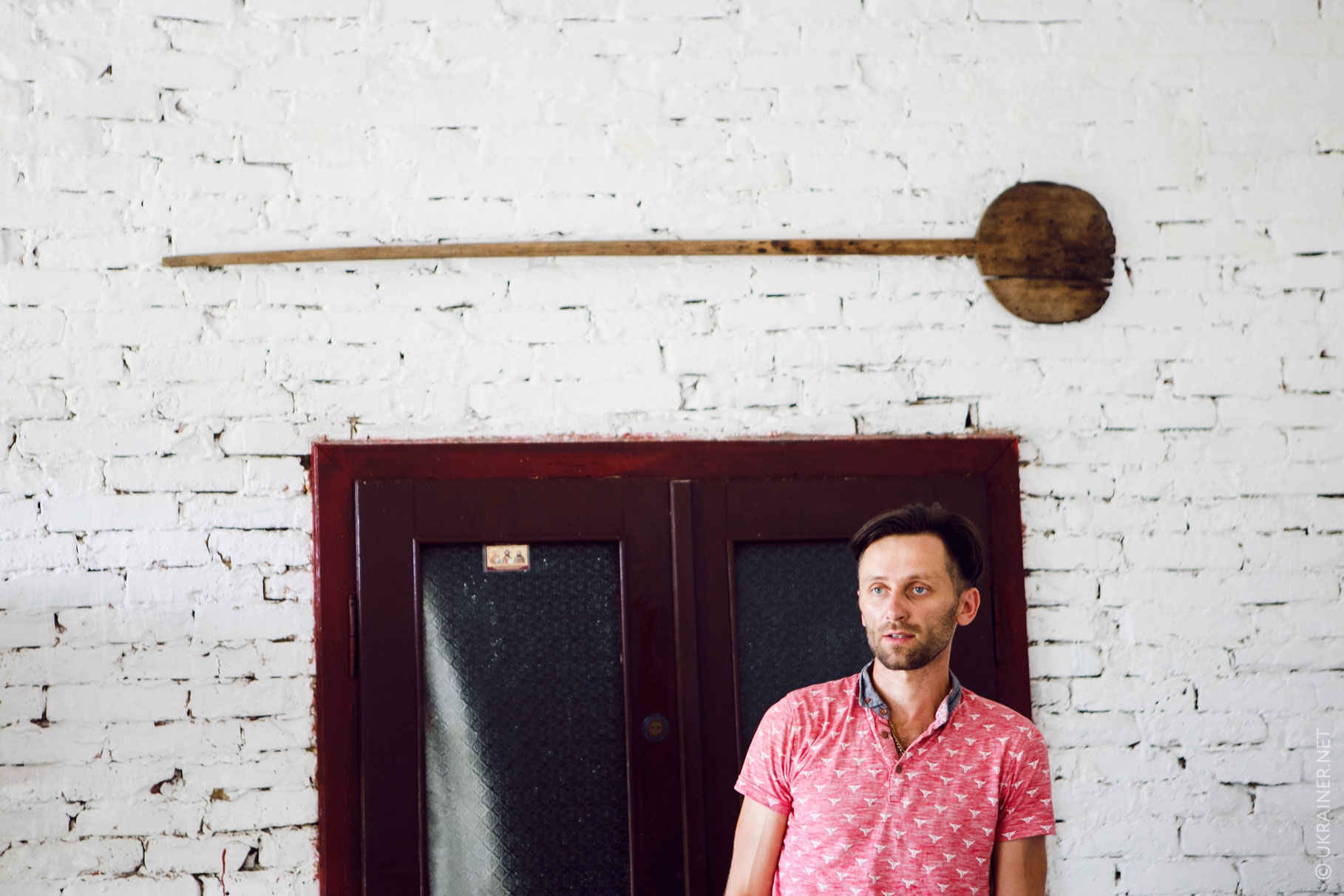
— There is a story about Alexander the Great. He entrusted that, when being buried, to leave his hands hanging down from the shield so that all people in town could see his open, empty palms. It was an exemplary moment – he owned a half of the world but took nothing with him. Therefore, material assets exist, one cannot survive without them – without food, for instance, but next to material valuables there are especially important spiritual valuables. Death comes with 100% possibility, everyone dies; only insane thinks he will live forever. I believe that I have a certain determined time; a moment will come when I’ll have to leave this planet and my body and to move to some different space. The only thing I can take with me is what I will develop and keep inside me.
How does the future look like?
— Do we plan to expand? In fact, there is a great deal of activities in village. I have financial background and I see here dozens of ways for development. For instance, we have excellent clay, we have an oven ready where the temperature can be increased up to 500 degrees, we can make pots and pottery. We just need a person who will love it. At the moment we don’t have such a person. I think, he will show up in the nearest future.
— We would love to produce our own products: jams, butter, cheese, sour cream, yoghurts, sun-dried tomatoes, and to put them not into glass jars but into clay pots. I’ve travelled the world, saw it in India, and bought natural yoghurt in pots. It preserves well, it is unique, beautiful and natural. This is how it should be.
For vegetarians, it is important to have fresh fruits, vegetables and dairy products so a few enthusiasts have already made a small greenhouse, approximately 5 X 20 meters, where they grow cucumbers, tomatoes and greenery – basic food products. Here we have bees (ten hives) to eat natural honey. These types of activity can be further developed.
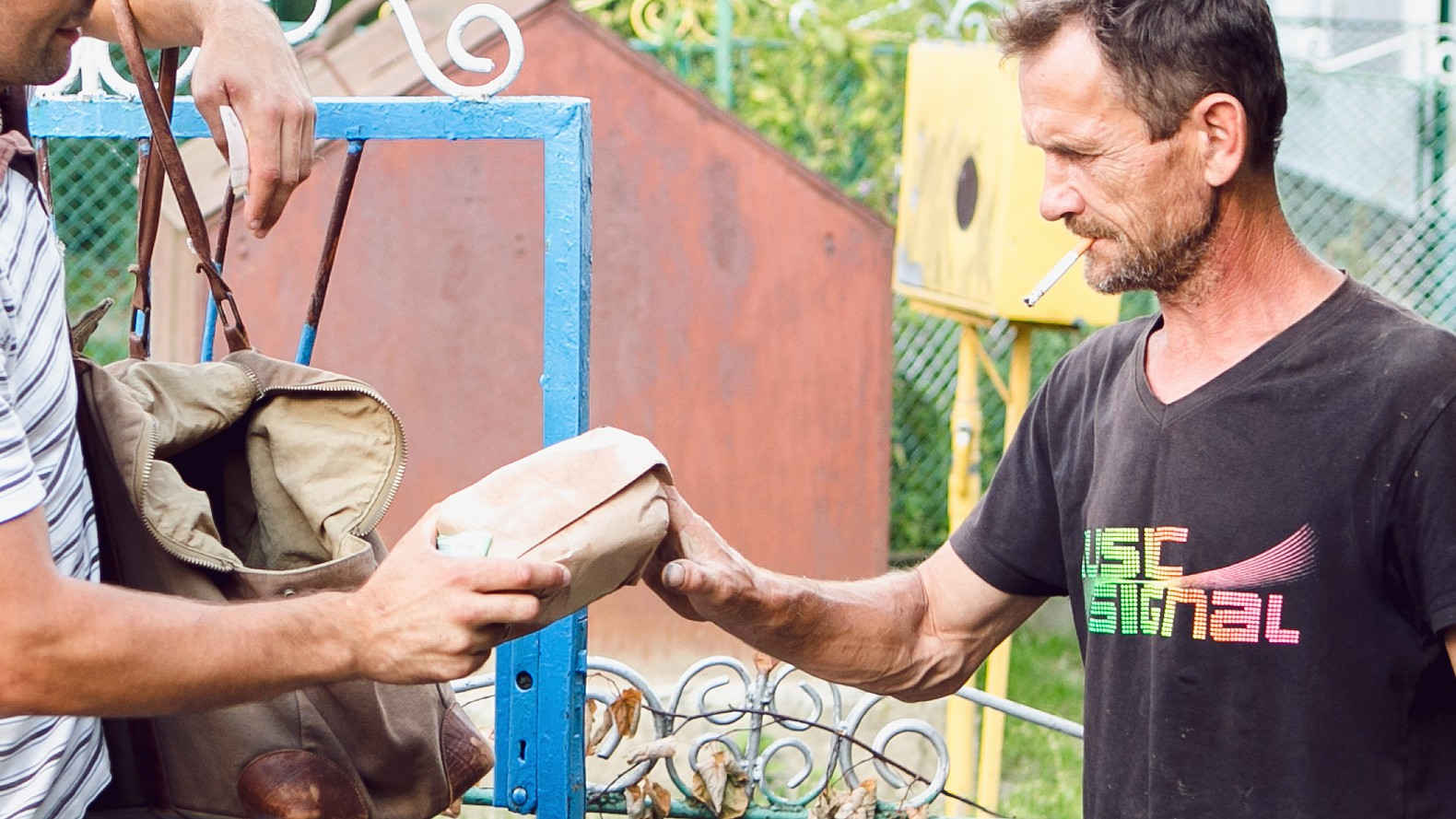
Among the areas the ecodwellers can deal with, Volodymyr also singles out gathering herbs and mushrooms, growing spices, and producing natural cosmetics. He also has the idea of producing jam, syrups, compotes, sun-dried tomatoes, and eventually all dried vegetables and fruits. As opposed to frozen products, dried ones preserve almost all microelements and vitamins. This year Patskaniovo activists plan to load the oven with all cut vegetables and fruits for drying out, after bread will be baked.
— Do you know what one of the guys got interested with? Pillow production and stuffing. Natural fabrics, and he wants to stuff it with various healing herbs. That is, a person sleeps on a pillow and breathes in the aroma of these healing herbs. Aromatherapy. Imagination is unlimited. If only there were people willing to do this.
And Maryna told us about her small project. Now she buys up bulks of lavender and plans to create a lavender field at least 10 x 10 hundredth part. In spring she is going to graft the herbs in greenhouse and then to plant the bushes on the territory. According to her words, lavender is the best among herbs. It’s neither cold, nor warm according to Ayurveda, and is very valuable due to its antiseptic and antifungal influence. It’s a perfect component for cosmetics and soap. Maryna lets us know happily: lavender field will be the first in Zakarpattia.
— If a person does something with love, this love will be felt in something he produced. You feel love, for instance, in this food cooked by Marynka. We will give you some syrup with you, you will mix it with water and feel that love again inside you. It exists in that bread. As people truly do their utmost and do it with love. And it is very important. I shall give you an example. Why mother’s food is the tastiest for you? Because mother can’t cook for her son without love. Frequently asked question: what spice is the most important in cooking? It is a simple question. What is the most essential spice in your view? And I was asked this question. Do you know what I answered? I said it was salt back then, as a lot of stories are told about it. However, the most important spice is love. If you put love in your dish, it is fantastic. You may offer no salt, offer nothing else at all.
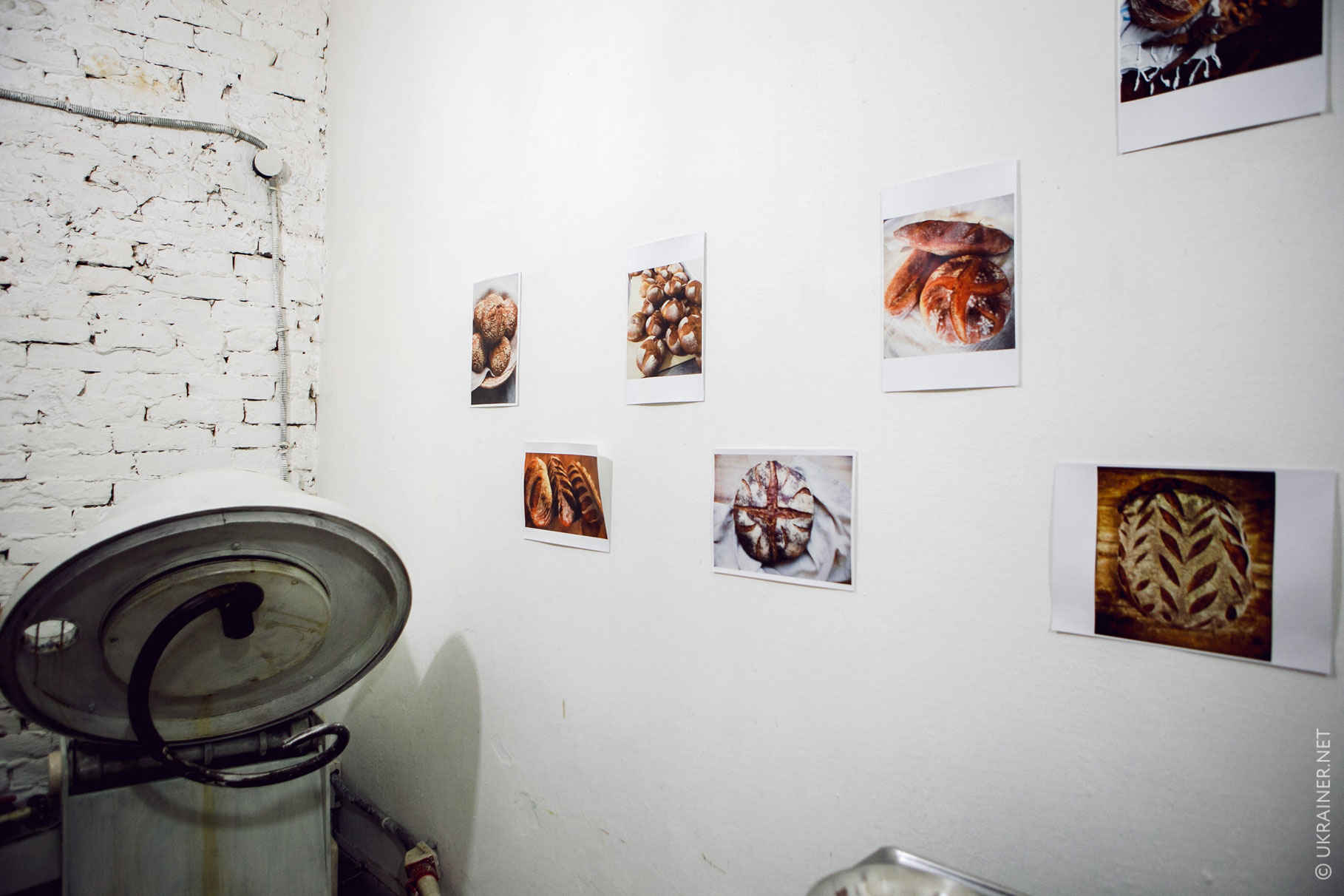
(Un) natural environment
— Sometimes people don’t understand me at all. They ask me: “So, why did you come here? We all want to move to Uzhhorod, don’t you have a place to live? “I do have a place to live – an apartment in the city center. I just got bored there, it’s not the environment a person should live in. Cities are artificial environment, it’s unnatural. How can I live in a place with no clean air? It is natural for a person to breathe fresh air, drink clean water and bathe in it. When we bathe, 3 liters of water get into organism through the skin. What do you bathe with in cities? The water is chlorinated there, so chloride comes through inside, and stuff like that. Water pipes are alongside sewer pipes. They are very old all over Ukraine. Do you think that sewage doesn’t get into water pipes? It does. I’ve lived in a village for a few months, washed myself with spring water. We went to a town and I happened to spend the night at my friend’s – he invited me. I went to a shower in the evening and felt a smell of poop, so strong. When you get used to something very clean your senses of smell and taste get intensified.
The source of happiness
— People are wonderful here in our village. Everyone has amazing qualities, and I try to look at and notice specifically at them. Certainly, if anyone of us is put under the microscope, one can find a good stuff and not as good. There is a psychology of a bee, and the psychology of a fly. So a bee and a fly fly out in the morning from one place. Both fly searching a beautiful flower to drink nectar there. However, a fly flies above the ground, notices a cow poop: “Oh, what is it there? What if I come down to see!” It comes down and spends all its life in a poop. And a bee pays no attention because it is not interested. It’s targeted at a blossom, a flower, a nectar. And it flies towards that nectar. Someone sees only bad in people, and someone sees the good. And whether you are a happy person, or an unhappy one, depends on that. As the source of our happiness is in our heads and hearts; it is what we let through inside us. If we try to see the good, then our life is filled with kindness and happiness; if we see the bad, then we receive the same in return.
After this inspired talk with the activists of a small ecovillage we made sure the places of happy people do exist. In our expedition we often meet people who don’t see the perspectives and work rather by inertia, creating no added value, while such wonderful exceptions like this small community in Patskaniovo are still rare, but they are bright example to follow.

